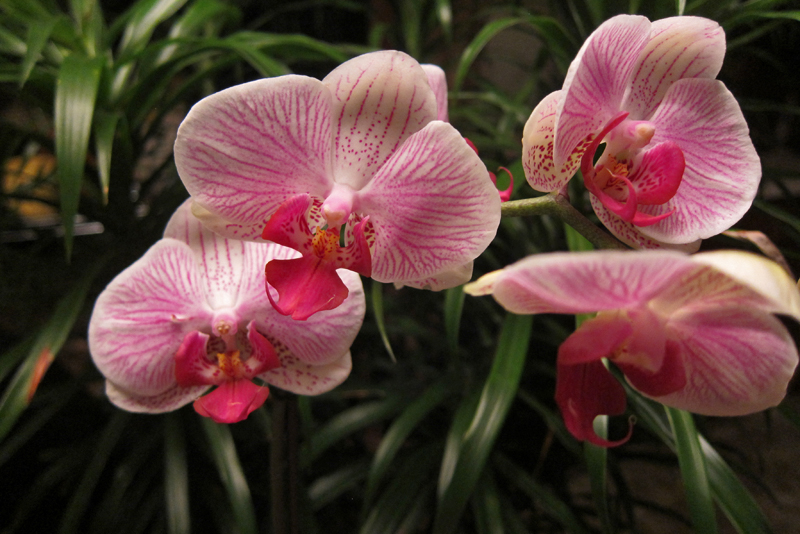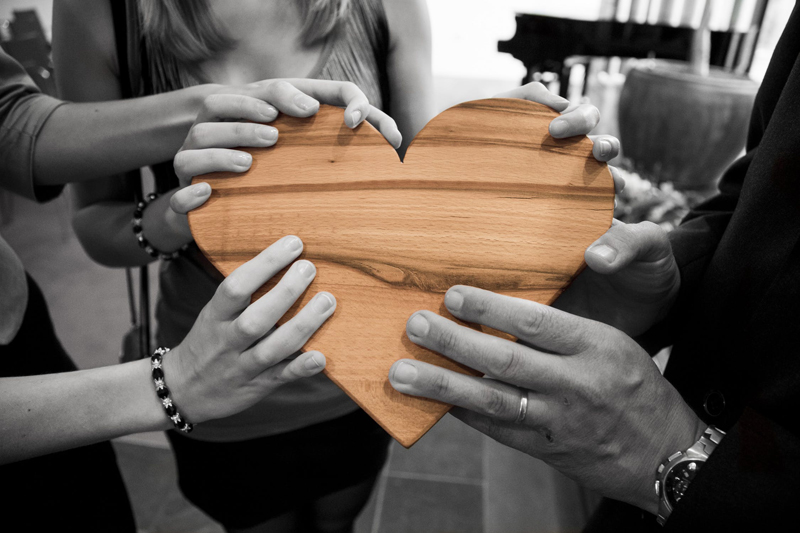Orchid Conservation Primer

Orchid conservation is a very hot issue, as you might imagine, in the orchid community. Getting the first orchid of a new species and propagating it can bring enormous rewards. Black market collecting and selling of orchids goes on every day around the world.
Indigenous population collection and sale of wild orchids to tourists to help support families is a common phenomenon. And in many countries there are so many orchid plants that they’re considered weeds -- it seems a waste of time to even speak of conservation. But the reality of the situation is that so many plants have been or are being collected from wild populations that there is a real danger of extinction in their natural habitat. In addition, much of the habitat where orchids grow naturally is being converted to farms or plantations by simply cutting and burning forests. Orchids live in the trees that are being cut and burned. They are being destroyed by the thousands this way at an unbelievable rate around the world.
How does this impact you as an orchid hobbyist and what can you do to help? First and foremost is never purchase wild collected plants. Always purchase species plants from reputable dealers who guarantee that their plants are propagated from seed or tissue propagated. It’s even possible to find black market sellers of native terrestrial orchid plants on eBay.
Think about donating to one of the organizations which is setting up natural preserves in different parts of the world to save habitat. This type of conservation is called in-situ or on the site conservation. The original habitat for orchids, its pollinators, and associated flora are all protected as part of a park, natural habitat, or other preserve. It is, of course, the preferred method, but is not always economically or politically feasible. Check out the World Land Trust for their habitat project in Ecuador.
Ex-situ or away from the site conservation consists of growing species away from its natural habitat, but thereby conserving the genetic material and the species itself from extinction. There are any number of stories of a few plants which survived drastic habitat destruction and are now extinct in the wild, but extensively propagated in the orchid community. If you have the proper conditions to host species orchids, think about adding some of them to your collection to do your part for conservation.
Another issue which has recently received attention from orchid societies across the world is the need for local societies to provide support for growers who are no longer able to take care of their collections and/or whose executors do not want to take care of the plants. This is an important issue, especially as more ex-situ species cultivation is encouraged. If you have a collection of plants, be sure that someone knows what to do in case you are unable to take care of them any longer and who to donate the plants to if necessary.
There are several good sites on the web which are aimed at conservation issues, you might want to check some of them out for more information on the issue.
Phytosophy a non-profit organization promoting orchid conservation.
Orchid Specialist Group whose mission is: “To assist in international efforts to conserve plant diversity, by providing technical support and encouragement for the development and execution of programmes to study, document, save, restore and manage wisely orchids and their habitats.”
The Orchid Conservation Coalition is a grassroots organization made up of people, orchid societies, and orchid businesses dedicated to raising awareness and money for orchid conservation.
Orchid Mania provides support to AIDS prevention and orchid cultivation, conservation and appreciation.
Indigenous population collection and sale of wild orchids to tourists to help support families is a common phenomenon. And in many countries there are so many orchid plants that they’re considered weeds -- it seems a waste of time to even speak of conservation. But the reality of the situation is that so many plants have been or are being collected from wild populations that there is a real danger of extinction in their natural habitat. In addition, much of the habitat where orchids grow naturally is being converted to farms or plantations by simply cutting and burning forests. Orchids live in the trees that are being cut and burned. They are being destroyed by the thousands this way at an unbelievable rate around the world.
How does this impact you as an orchid hobbyist and what can you do to help? First and foremost is never purchase wild collected plants. Always purchase species plants from reputable dealers who guarantee that their plants are propagated from seed or tissue propagated. It’s even possible to find black market sellers of native terrestrial orchid plants on eBay.
Think about donating to one of the organizations which is setting up natural preserves in different parts of the world to save habitat. This type of conservation is called in-situ or on the site conservation. The original habitat for orchids, its pollinators, and associated flora are all protected as part of a park, natural habitat, or other preserve. It is, of course, the preferred method, but is not always economically or politically feasible. Check out the World Land Trust for their habitat project in Ecuador.
Ex-situ or away from the site conservation consists of growing species away from its natural habitat, but thereby conserving the genetic material and the species itself from extinction. There are any number of stories of a few plants which survived drastic habitat destruction and are now extinct in the wild, but extensively propagated in the orchid community. If you have the proper conditions to host species orchids, think about adding some of them to your collection to do your part for conservation.
Another issue which has recently received attention from orchid societies across the world is the need for local societies to provide support for growers who are no longer able to take care of their collections and/or whose executors do not want to take care of the plants. This is an important issue, especially as more ex-situ species cultivation is encouraged. If you have a collection of plants, be sure that someone knows what to do in case you are unable to take care of them any longer and who to donate the plants to if necessary.
There are several good sites on the web which are aimed at conservation issues, you might want to check some of them out for more information on the issue.
Phytosophy a non-profit organization promoting orchid conservation.
Orchid Specialist Group whose mission is: “To assist in international efforts to conserve plant diversity, by providing technical support and encouragement for the development and execution of programmes to study, document, save, restore and manage wisely orchids and their habitats.”
The Orchid Conservation Coalition is a grassroots organization made up of people, orchid societies, and orchid businesses dedicated to raising awareness and money for orchid conservation.
Orchid Mania provides support to AIDS prevention and orchid cultivation, conservation and appreciation.
You Should Also Read:
Orchid Growth Types
Miniature Orchid Series
Orchid Growing Tips #1

Editor's Picks Articles
Top Ten Articles
Previous Features
Site Map
Content copyright © 2023 by Susan Taylor. All rights reserved.
This content was written by Susan Taylor. If you wish to use this content in any manner, you need written permission. Contact Anu Dharmani for details.





